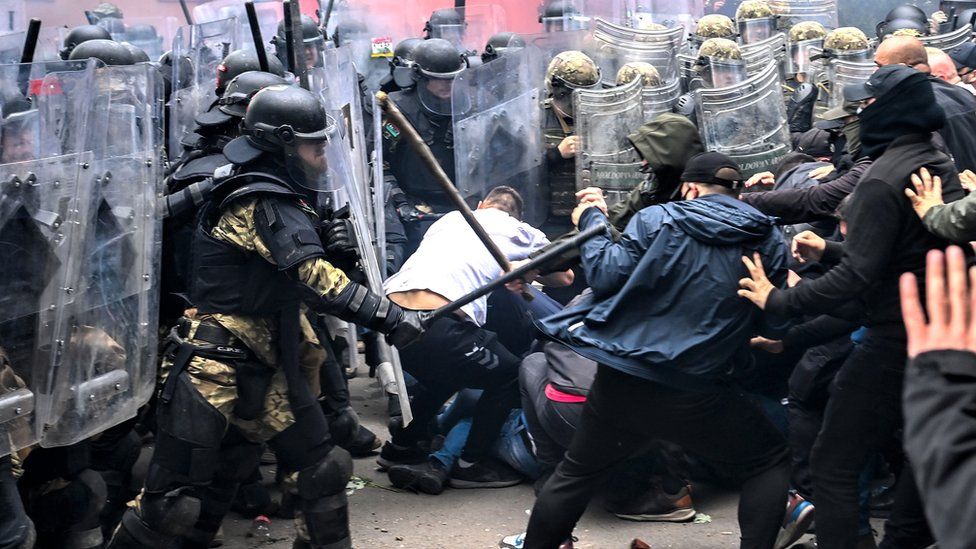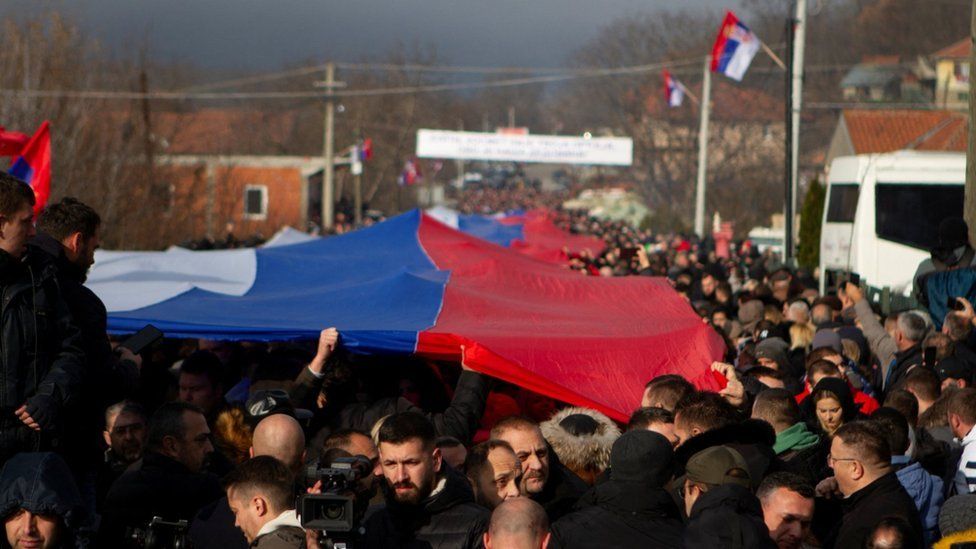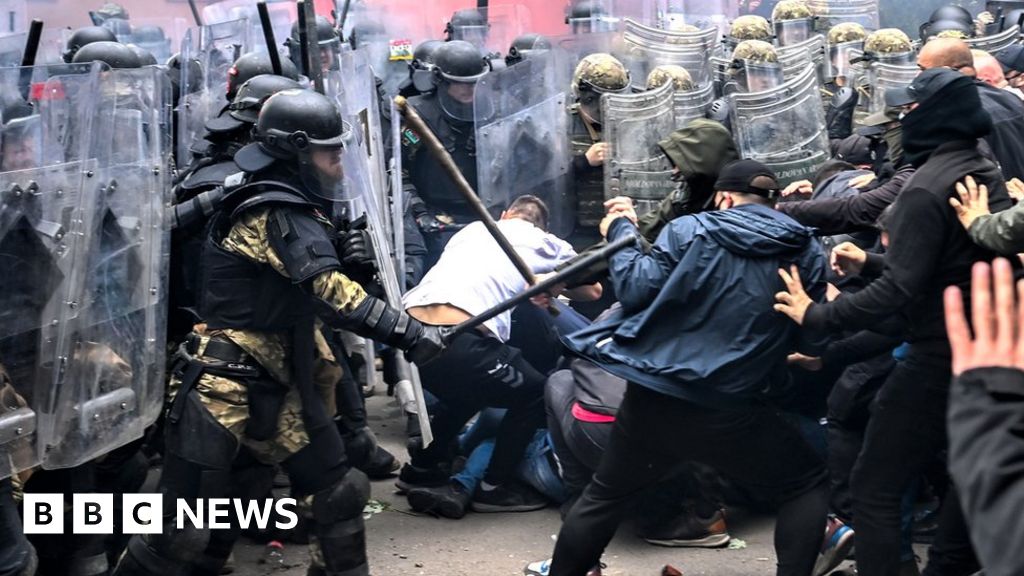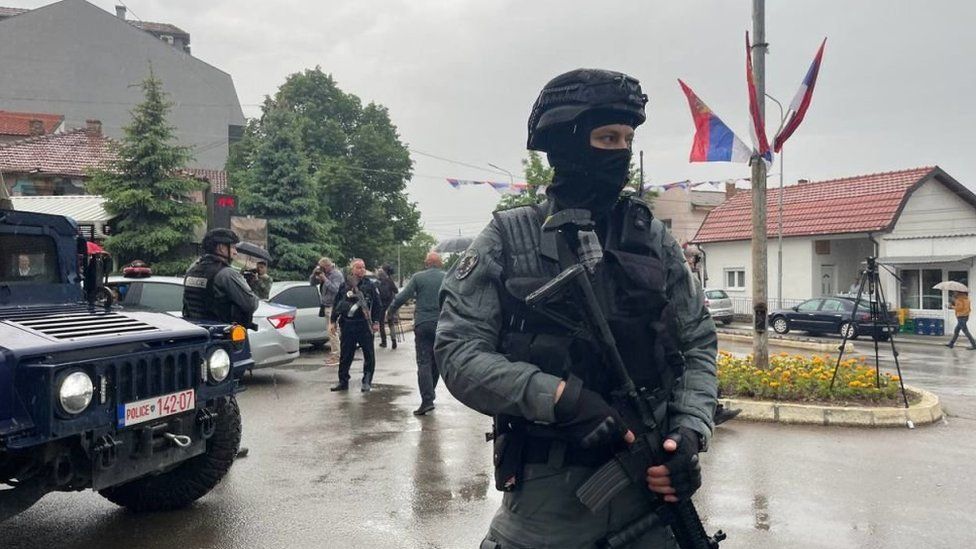
Nato has condemned as “totally unacceptable” attacks by demonstrators in Kosovo that left some 25 of its peacekeepers injured.
Police and Nato troops clashed with Serb protesters in the north where there has been unrest over the installation of ethnic Albanian mayors.
Tear gas and stun grenades were used to deter protesters in Zvecan, after they tried to invade a government building.
Nato soldiers also formed a security cordon around two other town halls.
The crisis dates back to April when Kosovo Serbs boycotted local elections, allowing ethnic Albanians to take control local councils with a turnout of less than four per cent.
Nato peacekeepers from Italy and Hungary were among those hurt in the latest violence on Monday, with three of them left in a serious condition, a Nato spokesperson told the BBC.
The Nato-led troops in Zvecan at first tried to separate protesters from the police, but later dispersed the crowd using shields and batons, AFP reported.
Several protesters threw rocks and Molotov cocktails at the soldiers, the agency said.
Nato called the attacks “totally unacceptable” adding in a statement that it called on all sides to “refrain from actions that further inflame tensions, and to engage in dialogue”.
Eleven Nato soldiers from Italy were among those hurt in the latest violence on Monday, with three of them left in a serious condition.
Serbian President Aleksander Vucic put the army on the highest level of combat alert in response to the fresh protests. He moved army units close to Kosovo’s border on Friday, following similar clashes.
The deputy head of the Serb List, the biggest Kosovo Serb party backed by the government in Belgrade, has accused Kosovo’s Prime Minister Albin Kurti of trying to create chaos for everyone in the region.
“Do not allow those fake mayors to entering here because they won 50 votes,” said Igor Simic. “Even Albanians are not voting for it.”
The recent disorder began after Kosovo Serbs – who account for about 5% of the country’s 1.8 million population overall – boycotted April’s local elections in four northern municipalities that are majority Serb. This allowed ethnic Albanians to take control of the councils.
Belgrade backed the boycott – resulting in a turnout of just 3.47% – which was sparked after the Serb community demanded the establishment of a promised association of Serbian municipalities.
Kosovo unilaterally declared independence from Serbia in February 2008, after years of strained relations between its Serb and mainly Albanian inhabitants.
It has been recognised by the United States and major European Union countries, but Serbia, backed by its powerful ally Russia, refuses to do so, as do most ethnic Serbs inside Kosovo.
Despite its support, the US has criticised Kosovo over the move to install the Albanian officials, saying it had “sharply and unnecessarily escalated tensions in the region” and had served to undermine efforts to “normalise relations between Kosovo and Serbia”.
-
-
27 December 2022

-

